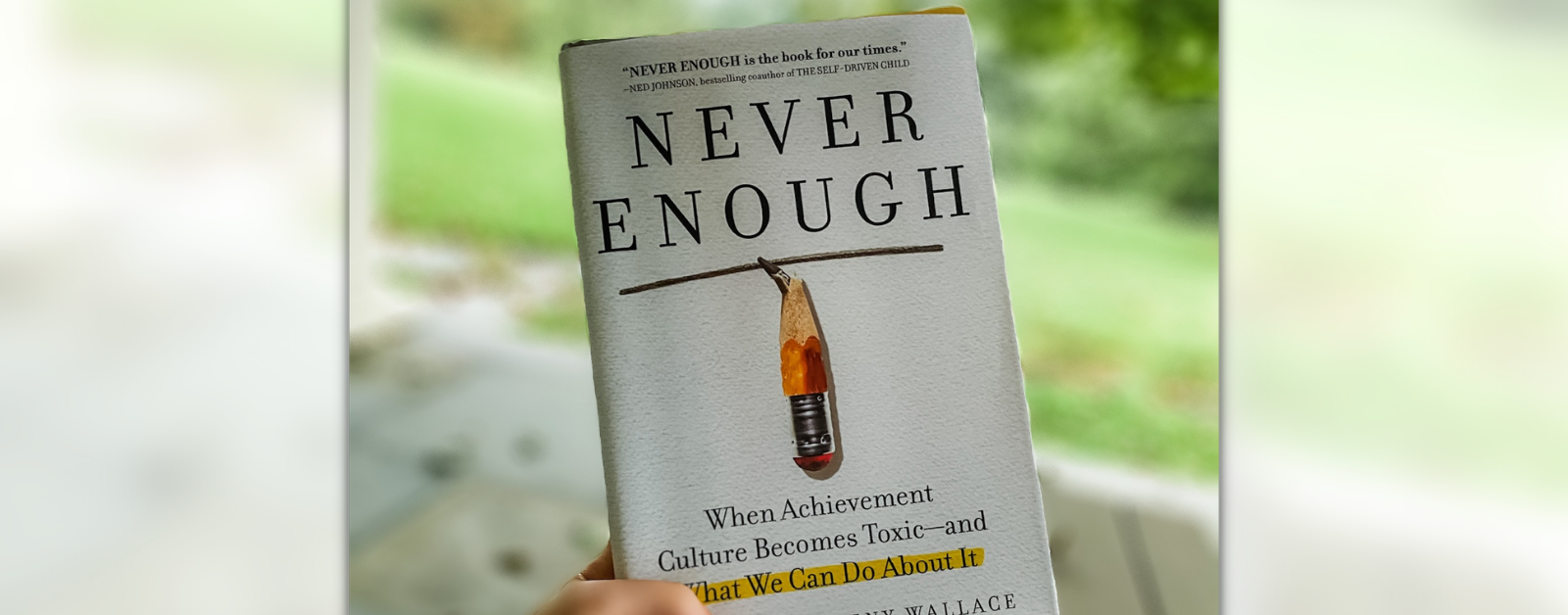“Not good enough.”
It’s a phrase that shows up in my head uninvited, with regularity. (And yes, for those of you wondering, I am an Enneagram One and my inner critic seems to know only this phrase!)
So when I heard about Jennifer Breheny Wallace’s new book, Never Enough: When Achievement Culture Becomes Toxic—and What We Can Do About It, I knew this was a book not just for me as a parent, but also as a human who is unlearning all the lies I’ve believed about what makes us valuable.
I could write a LOT about this book, but for the sake of space here I’ll give you six short takeaways, and recommend that you pick it up yourself, especially if you are immersed in a culture of high achievement:
1. High Risk
Kids growing up in “high-achieving schools” are considered to be at high risk of anxiety, depression, and substance abuse as a result of their environment
2. Achievement
Achievement in and of itself is not the problem. There is a healthy way to achieve. It’s just not what most kids in these environments are learning.
3. Mattering matters.
Everyone needs to know that they matter not for what they accomplish but for who they are. “Mattering… captures feelings of ‘being valued’, such as belonging, community, and attachment, as well as feelings around ‘adding value’ such as self-determination, mastery, and competence.”
4. Parents’ job
Part of our job as parents is helping our kids make choices and not doing all the things. Sometimes kids “need the adults in their lives to hold them back to prevent them from sacrificing their minds and bodies on the altar of achievement and to teach them how to build the kind of life they won’t need substances to escape.”
5. Time
If there isn’t time in our lives, or our children’s lives, for some basic human activities like friendship, participating in household chores, and sleep, then there’s a big problem.
6. I wish
I wish there had been more acknowledgement of the role of spiritual practices, communities, and beliefs in this book (see The Spiritual Child by Lisa Miller for more on that point).
The bottom line is that a culture that values humans only for what we produce or achieve is a culture that harms us. This is a book to help identify how we can live differently amidst that culture, and I’m grateful for it.
More with Amy Julia:
Addressing our Mental Health Crisis
Develop Your Spirituality by Starting Small
Domestic Monastery
Friday Favorites and AJB Recommends
Subscribe to my newsletter to receive regular updates and news. You can also follow me on Facebook, Instagram, Twitter, Pinterest, and YouTube, and you can subscribe to my Love Is Stronger Than Fear podcast on your favorite podcast platform.



